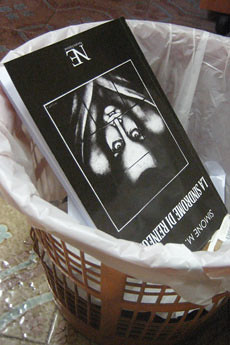Electronic books are becoming increasingly popular. It 's rare to get on a subway car at rush hour in New York or sit in a coffee shop without seeing someone reading an e-book. And now the ubiquitous books are doing on-screen fight publishers and libraries, separated by a dispute that until a few years ago would not have existed.
Libraries want to deal with e-books like those of paper: one copy, when purchased, can be given an unlimited number of times. So far, the editors had accepted, but now one of them broke ranks and opened a controversy that will have significant consequences. HarperCollins, one of the leading publishing houses of America, which publishes, among others, Sarah Palin, has changed the way its e-book use by libraries.
No more forever, but only for 26 times. Then you have to buy a new electronic copy. (Why 26 times? The average two-week loan, one year ago.) Harpercollins The change of course has raised the ire of librarians who think the new rules unfair and promise to boycott the publications editor.
"We want in our collections there are also e-books, our customers are demanding more and more and we must try to please them, but we also need to avoid a steep increase in costs," said Anne Lee, the Free Library of Philadelphia, the New York Times. Robert Stevens, president of the National Library, summed it up: "The library budgets are at best still.
The use of e-book is growing very strong. And there is serious concern that other publishers will follow the model "at HarperCollins. Harpercollins defends its decision saying that the previous agreement was a decade old, when e-books were not a mass phenomenon today. Just think that the New York Public Library, the main city's library, the use of e-books has increased by 36 percent compared with a year ago. 


Libraries want to deal with e-books like those of paper: one copy, when purchased, can be given an unlimited number of times. So far, the editors had accepted, but now one of them broke ranks and opened a controversy that will have significant consequences. HarperCollins, one of the leading publishing houses of America, which publishes, among others, Sarah Palin, has changed the way its e-book use by libraries.
No more forever, but only for 26 times. Then you have to buy a new electronic copy. (Why 26 times? The average two-week loan, one year ago.) Harpercollins The change of course has raised the ire of librarians who think the new rules unfair and promise to boycott the publications editor.
"We want in our collections there are also e-books, our customers are demanding more and more and we must try to please them, but we also need to avoid a steep increase in costs," said Anne Lee, the Free Library of Philadelphia, the New York Times. Robert Stevens, president of the National Library, summed it up: "The library budgets are at best still.
The use of e-book is growing very strong. And there is serious concern that other publishers will follow the model "at HarperCollins. Harpercollins defends its decision saying that the previous agreement was a decade old, when e-books were not a mass phenomenon today. Just think that the New York Public Library, the main city's library, the use of e-books has increased by 36 percent compared with a year ago.



No comments:
Post a Comment